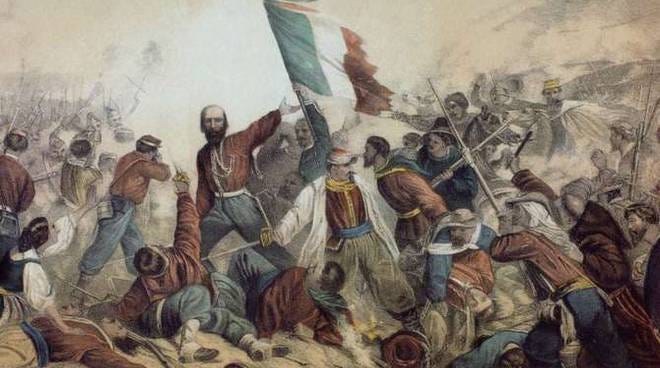I recently read Gay Talese’s Unto the Sons. A section of the book covered Giuseppe Garibaldi’s quest to unify the Italian peninsula which is known as the Risorgemento. In the book, Garibaldi’s story is told through the perspective of an enthusiastic late 1800s school teacher relaying the tale to Talese’s father’s class in grammar school. Later, drawbacks of the unification are mentioned by Talese’s great-grandfather and several other southerners. These men thought the Risorgimento held them back from the more ‘respected’ northerners, who the country saw as being better educated and gave preferential treatment to regarding military placement during both World Wars.
In David Gilmour’s The Pursuit of Italy, Gilmour attempts to get to the bottom of whether the Risorgimento was a good thing for Italy after meeting a northern priest who comments that the north would be the strongest country in Europe were it not for the lowly southerners holding them back. Well, as you read in Unto the Sons, the same could be said regarding the south being held back as their great cities of Naples and Palermo are relegated to second-city statuses with Florence, Rome, and Milan getting preferential treatment. It’s definitely interesting. How many Italian men were forced to die for a cause they didn’t truly believe in during the World Wars? Well, over a million Italians died during those wars. The Risorgimento turned the Italian peninsula into the fifth largest country in Europe. Still, how many were forced to fight for that cause while believing that what they were getting out of the deal wasn’t worth the bloodshed?


